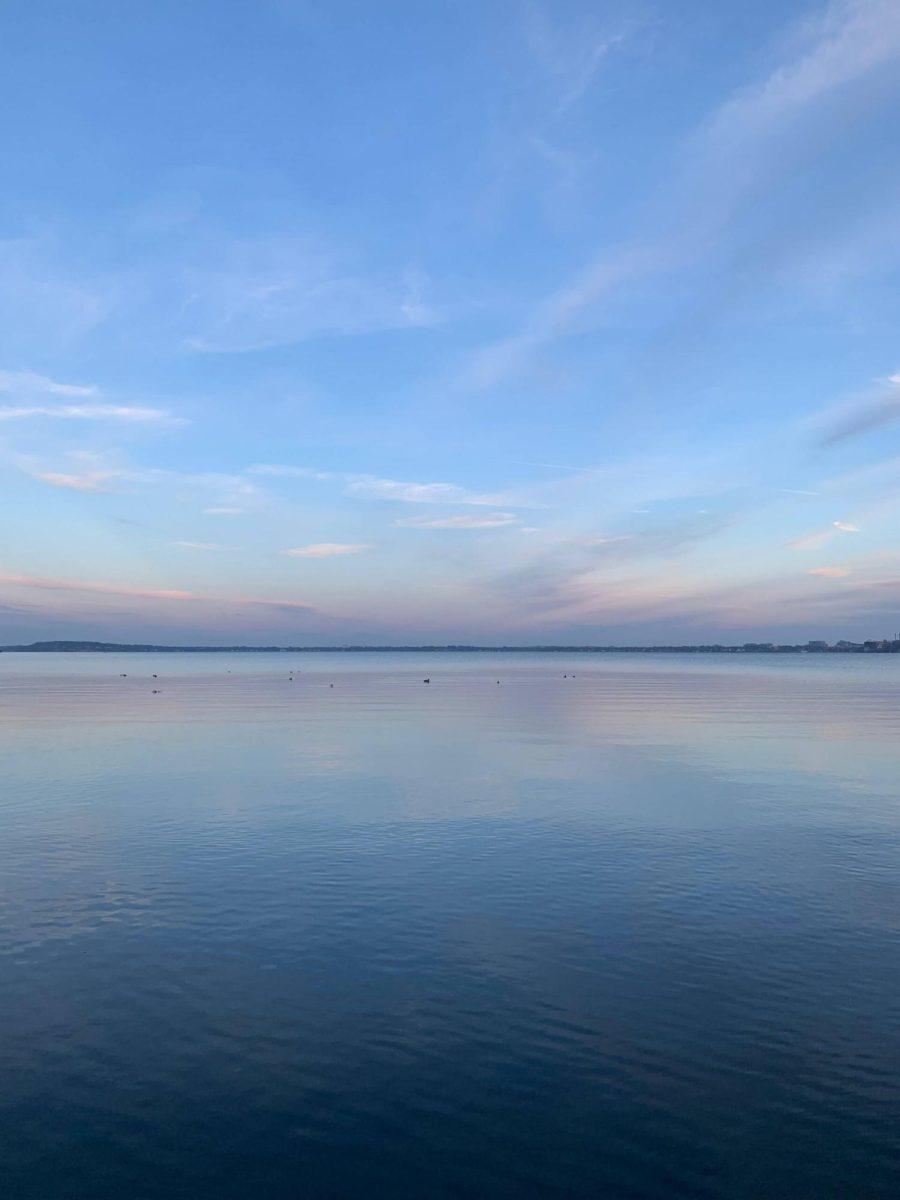The University of Wisconsin lies between two lakes in a chain of four, making it an important center for studying the health of freshwater lakes. On March 5, UW postdoctoral fellow Raymond Allen presented on the UW campus, sharing his research on the connection between communities and lakes at the Zaaga’iganan Kinship Project.
Allen received his undergraduate degree from Ripon College and attended Duke University for doctorate in biology. He is a member of the Lac du Flambeau Chippewa Indians and was raised on the tribe’s reservation. He was also elected general council member for two years by the Lac du Flambeau Tribe.
“We seek to determine the relevance of Wisconsin’s lakes to tribes and tribal citizens in the area,” Allen said.
Allen said he is interested in taking a holistic, investigative approach to understand the cultural, economic and ecological importance of lakes to tribal citizens and how the depletion of Wisconsin’s lakes and their resources affects Native communities.
Allen founded the Lake Kinship Project, which partakes in collaborative research with the Lac du Flambeau Tribal Natural Resource Department, according to Allen. Leveraging his background as an elected council member and his biological education and expertise, Allen is working on the Kinship project to help build a community between scientists and Tribal members.
https://badgerherald.com/news/2024/03/05/study-finds-having-purpose-in-life-may-increase-emotional-resilience-longevity/
The goals of the Lake Kinship Project are different from goals in Western sciences — its findings will have a community benefit of helping tribes educate themselves and make policy decisions about natural resources, Allen said.
For the Lake Kinship Project, Allen collaborated with recent UW graduate Sagen Quale to study wild rice in the northern regions of Wisconsin. Wild rice, known as Manoomin to Ojibwe peoples, is a hugely important aquatic plant for Native communities.
“Manoomin is local to northern Wisconsin and serves a very important purpose to Native Tribes,” Allen said. “It is also the reason for the Ojibwe migration into the Great Lakes.”
Allen said his research methods consist of interviews with tribal members, tribal elders, lake association members, hunters and visitors of the region.
In these interviews, Allen seeks to understand what is harvested on the water, what Native peoples back to the lakes and what brought them to the region, Allen said. The purpose of interviewing a variety of populations is to gain a holistic approach on how to better support the Ojibwe Tribe and other Native communities, Allen said.
“Excerpts from previous interviews include concerns for lake health and the importance of food sovereignty,” Allen said.
Manoomin is harvested from lakes and is highly sensitive to water quality, so healthy lakes are essential for the well-being of Manoomin abundance and Native communities.
According to Allen, he hopes to use his findings to collaborate with Native communities in an effort to preserve their culture and way of life.







